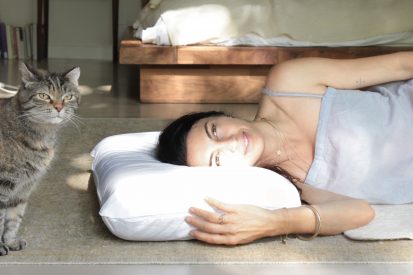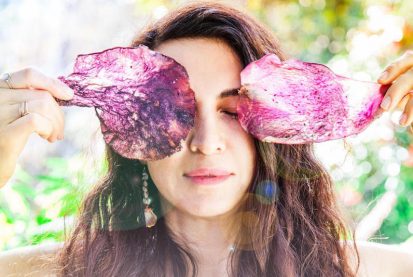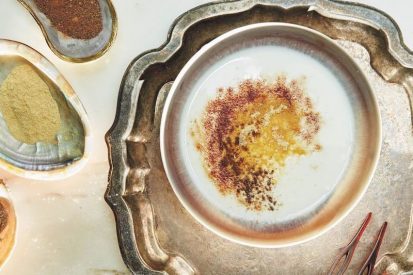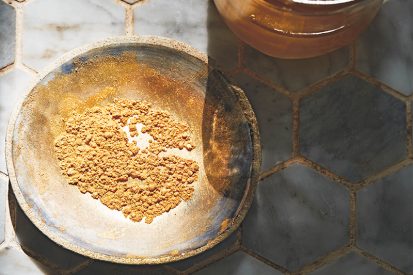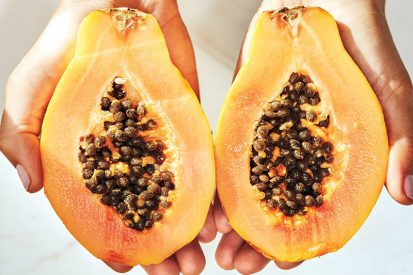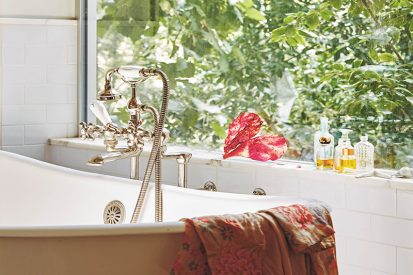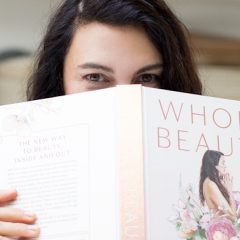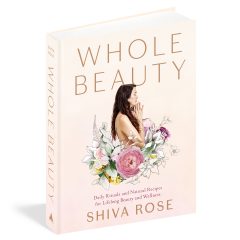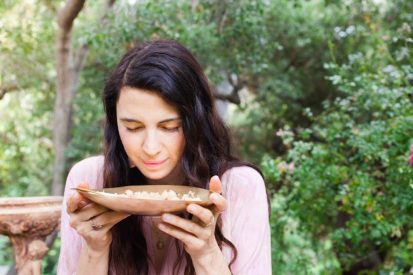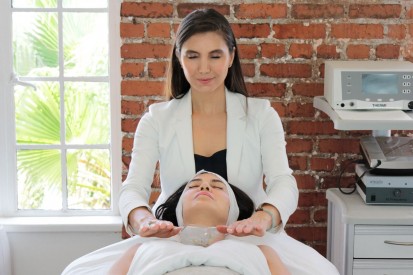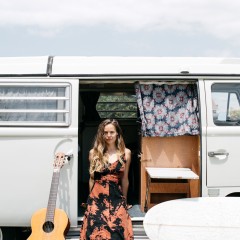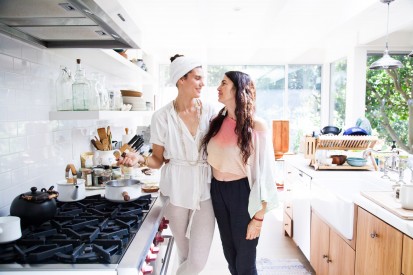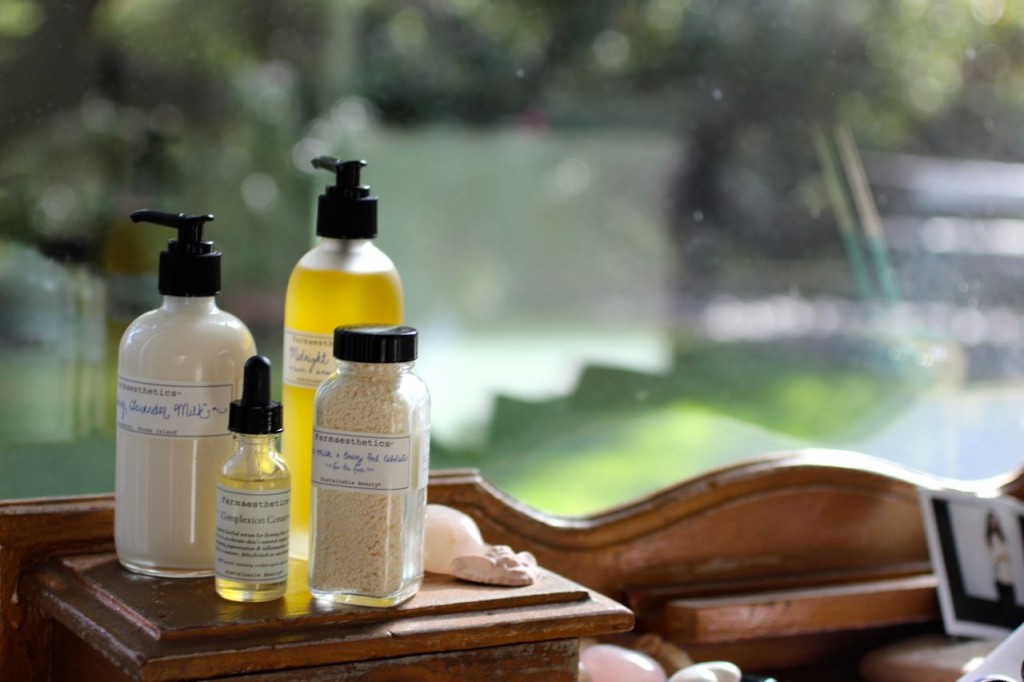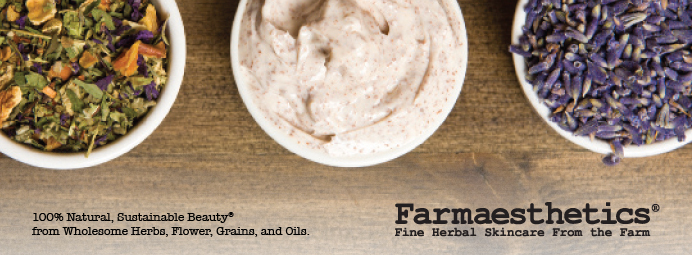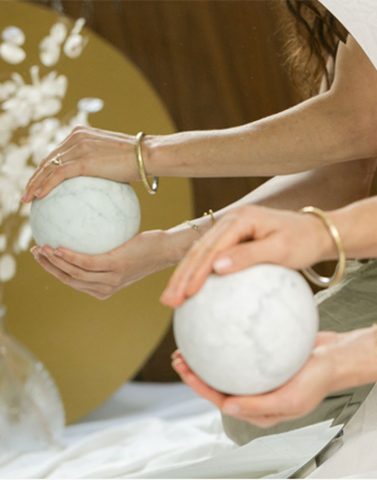From Farm to Face
I am really inspired after my interview with Farmaesthetics’ founder Brenda Brock. She started using local plants to make ointments, and that grew into a road side stand in Newport Rhode Island. Today her ‘hobby’ has grown into a major operation where she creates wonderful nourishing products. I really like the idea of how a farmer’s daughter has taken the best our mother can give us, and translated it to beauty care. My favorites so far are the Complexion Conserve and Sweet Milk Facial Exfoliate. The serum goes on thick but it really makes my skin feel firmer. The mix of castor oil, carrot seed and vitamin E makes for a powerful serum!
1) What inspired you to start the line? I think a big part of it is my love and reverence of all things rural, and traditional lifestyles, including my own farming family heritage. That connection to nature and the land is bone deep in me, and I feel a calling to tell the story- and for me right now, I tell it through the lens of herbal skincare and kitchen chemistry.
2) Many people still feel oil can make you break out can you explain why this isn’t the case? I think people equate “oil” with the old mineral oils that have permeated the market over the past decades. Mineral oil is a petroleum product, and will congest the skin, serving to establish the perfect environment for breakouts. But real, organic oils are made from seeds, fruits, nuts, etc…The fact is, even an extremely oily complexion can be dehydrated. And when we apply synthetic alcohol-based astringents to rid the skin of “unwanted oil”, the body registers: “Oil removed! Need more oil!” Then the body produces more oil. So the more aggressively you strip the skin of natural oils, the more the body produces to try to keep a balance. “Oil on oil” is the new treatment for oily skin in holistic circles. Slow oil production by moisturizing the skin with nutrient rich natural oils- a sound way to treat troubled, oily skin.
3) What is your beauty secret? Sleep, Beets and Farmaesthetics
4) What or where is your favorite meal? Pinto beans, rice, collard greens, stewed okra, sliced tomatoes, spring onions and buttermilk. This was my Daddy’s favorite and a staple Sunday supper in our family. It’s my go to meal …
5) What is your dream vacation? I dream of different getaways depending upon my interests at the time. Right now, I am longing to go to Scotland and get into some mist and fog and explore castles and countryside. Both my husband’s family and my Mother’s originated in Scotland and I am longing to linger in a museum and reconnect with ancient customs, culture and art forms and learn a bit more about our ancestors.
6) I love how you talk about the energy of plants do you also regard food with this consciousness? ABSOLUTELY
7) Do you eat organically? I buy and eat organically and locally with the seasons. But I am not opposed to eating conventionally grown produce if I know the farmer. Not every farmer can afford the certifications for organic. Many farmers are in transitional phase of organic certification because they have taken over plots of land that have not been used in farming for decades, so there is a waiting period. But most farmers will have tested the soils and will begin the process of growing organically with certification as the goal. I love supporting transitional farms.
8) You mention the quote ‘the farmer takes care of the land, and land takes care of the farmer’. Do you feel this is becoming more rare in our country? I feel that this is becoming more robust. I see “rural restoration” underway even in our own conservative New England state of RI where there are open space initiatives to help keep farmland in play. Ever more, people are assuming stewardship of small parcels of land, many after years in another profession. With the movement to eat clean and local foods both at home and in restaurants (Farm to Table) and like Farmaesthetics (Farm to Face), farmers can make a living farming. I love to see the agricultural departments at universities beginning to fill with smart, young people, seeing business opportunities in better soil and farming practices.
9) What are ways we can take care of our land? Approach your staple diet of food and everyday products with a fresh eye:
- Eat Seasonally
- Support the growers and companies that support growers by buying and consuming unprocessed whole natural foods and products that use these whole ingredients and practices. Vote with your dollars.
- Be mindful of the distance between where something is grown and where it is used or consumed and make that distance as short as possible. Warehousing food and then flying it around or trucking it cross country is not good for the environment. Some goods must be handled this way, but I think we have healthier options for food distribution in this country.
10) Are you a mermaid or forest fairy? Forest Fairy!
11) What book is on your nightstand? My pleasure read right now is “A Natural History of the Senses” by Diane Ackerman. Also, always on my bedside table are my staple reference materials: “Old Farmer’s Almanac, 2013” and “Back to Eden”.
(Photo courtesy of Martha Stewart Living Omnimedia.)

